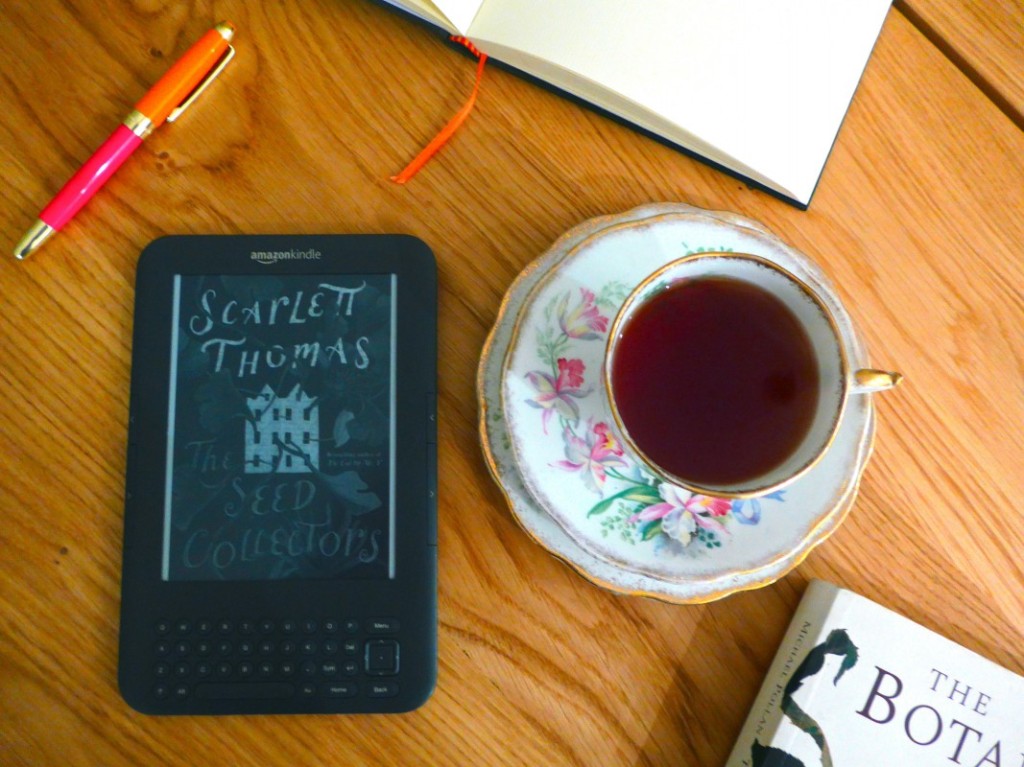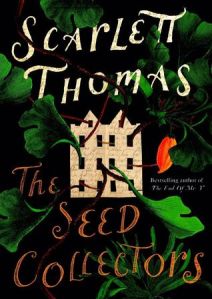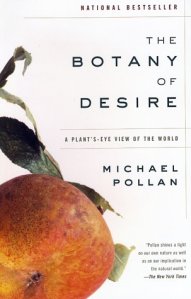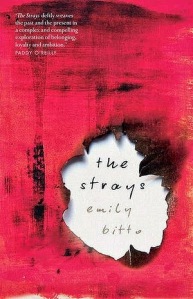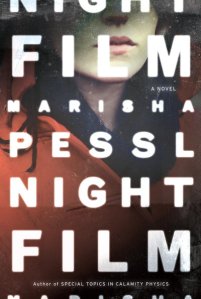Margot McGovern reviews Scarlett Thomas’s The Seed Collectors (2015), a smart, twisting story of forbidden fruit and family secrets.
Somewhere in the world there is a magical book. What does this book do? It simply changes itself to become the book you most need at this point in your life. If you are poor, perhaps it transforms into a very expensive book. But this is unlikely, because your soul knows of all the things you really need, and it is unlikely that wealth will be the most pressing thing. Does such a book really exist? Of course, it is impossible to tell for sure. And even if you had it, it would be so easy to lose and more or less impossible to find again. What would you search on eBay? To you it is one particularly essential book; to me, something else. If i gave it to you as a gift I would not even know what i was giving you. Not that anyone in their right mind would give such a valuable book away. Or maybe they would. Maybe once enlightened, which of course does not just mean seeing the light but also becoming lighter and less weighed down, they would leave it on a bus. How long would it stay there? It would not look like a magic book. It would look…off-putting religious? Dull? Perhaps even too light? Maybe it would be The Seagull by Chekhov. Perhaps it would be a book of spells. Perhaps it would be A Course in Miracles. The Upanishads. If you have ever not picked up a book left behind on the bus, it is almost certain that you ignored The Book. You ignored your destiny. You ignored your chance to get out of this bloody universe once and for all.But that’s what most of us spend every lifetime doing, so it’s no big deal. But just imagine if you found the book. What would it look like? Would you even know you were reading it?
Intrigued? Read on, my friend, The Seed Collectors might just be your magic book.
The Gardener family tree is full of twisted branches and hidden hollows. Back in the late 1980s, Briar Rose, Grace and Plum Gardener went searching for a fabled orchid of incredible power and were never seen again. Now Great Aunt Oleander is dead and Fleur, Clem, Charlie and Bryony have each inherited a seed pod, believed to be from the same orchid their mothers went looking for years before.
Fleur is supposedly on the path to enlightenment. She lives at Namaste House, a wellness retreat where she teaches yoga and meditation to celebrities, brews opium tea and keeps up her affair with a married man to keep herself from thinking about her great, forbidden love.
Charlie spends his days identifying exotic blooms and his nights seeking to recapture the thrill of his first love with sadomasochistic acts that would give even Christian Grey pause.
Bryony should be fulfilled, but isn’t. Her doting husband, two children, a career in real estate and a near complete masters degree add up to a less than satisfying life. She eats when she’s not hungry, drinks far more than she should and treats herself to extravagant shopping sprees, consuming more and more in an effort to stop the widening gap of dissatisfaction.
Clem is the opposite. An academic and Academy Award nominated documentary maker, her life is neat, ordered and efficient. And yet, she too is dissatisfied, keeping her feelings folded up and pressed down where no one, least of all her husband, can find them.
If the Gardeners can figure out how to use them, the seedpods will give the them the fulfilment and happiness the so desperately seek—but at a terrible price.
There’s also a magic book floating about—a book with The Answer to whatever the reader most needs to know.
For the uninitiated, Scarlett Thomas has a talent for philosophical narratives that wind their way around mind-bending questions: Is the world as we see it mere simulacrum? If life as we understand it is an illusion, then what is ‘real’? And what does any of it mean, anyway? Is there such thing as free will, or are we beholden to some tragic mechanism, the bonds of fate becoming tighter the harder we struggle against them? Can we distinguish between desire and suffering, or is one merely an exquisite form of the other? And if desire and suffering are one and the same, what then is happiness and can the pursuit of it ever be anything but an act of self-destruction? In the hands of anyone else, Thomas’s plots would come off as highly pretentious and largely impenetrable. But Thomas is a gifted storyteller with razor sharp wit and her novels have the casual flare of a rollicking beach read, with the added bonus of leaving readers questioning their very existence.
It’s always best to come at Thomas’s work with an open mind and a keen sense of adventure; while her narratives start in this world, they are full of paradigm shifts and detours to other dimensions. The Seed Collectors is Thomas’s ninth and arguably most ambitious novel to date. Her writing has matured; it’s a ‘smarter’ book, but less self-consciously so than some of her earlier work, and unlike The End of Mr. Y (2006) in particular, readers can skip the crash course in cultural theory before diving in. Still, it gets pretty trippy in places. You have been warned.
There is a theory that plants share a collective ‘consciousness’. As Thomas explains it: ‘…consciousness takes on different forms. Why is ours the best? … What we call consciousness is, after all, just a lot of cells that are not conscious doing things in harmony with one another.’ Over millions of years plants have developed scents and aesthetics that appeal to birds and insects, tempting them to carry pollen and seeds and in doing so help the plant to expand its territory and multiply.
So Thomas tosses out a hypothetical: What if humans, like plants, once shared a collective consciousness? What if the whole universe worked that way, and then somewhere along the line, we tasted the forbidden fruit and became self-aware and selfish? What if this new, intelligent self is an outcast from the collective, God, Eden, or whatever you want to call it? And what if the thing we desire most is to return to the fold? In short: what if, deep down, we are tragic creatures whose driving desire is to annihilate the self?
Sound dark? It gets darker. Some have taken this theory of plants’ collective consciousness and their ability to bend the birds and bees to their will a step further and argued that humans, too, are subject to this manipulation. It’s an argument Michael Pollan explores in his (completely uh-mazing) book, The Botany of Desire: A Plant’s Eye View of the World (2002). (If you’re at all interested in plants and haven’t yet read it, you must.) And it’s an idea Thomas draws on in The Seed Collectors too:
The people who think they are most in control of nature are the ones being most controlled by it. We only really do what plants make us do. We are like huge bees in a way, moving around mot just pollen but seeds, fruits, whole plants. And we think we are doing it because we want to, but we are actually doing it because the plants want us to.
Now what if there was an orchid that observed our tragic nature and saw an opportunity?
And then, the biggest question of all: if you found this plant that could satisfy your deepest most primal desire, that could give you in an instant the enlightenment you might otherwise spend lifetimes seeking, but for which it you would pay the ultimate price, would you eat the seeds? Would you have a choice?
It’s heavy going, but Thomas serves her story with generous helpings of humour and pathos. Her characters are flawed and funny, hopelessly adrift in the doldrums of their upper-middle class existence and fishing for meaning in all the wrong places.
The Seed Collectors is dark and deep, but laced with sharp and sparkling wit. Like The End of Mr. Y, Our Tragic Universe (2010) and PopCo (2004) before it, it’s the kind of story that leaves the reader altered, pondering a string of ‘What if’s—a most magical read, indeed.
The Seed Collectors is available through Amazon (Kindle), Book Depository and Kobo.
If you enjoyed The Seed Collectors, these titles might also tickle your fancy:
Like what you see? Keep in touch:
 |
 |
 |
 |
And get the latest from Lectito delivered to your inbox.

